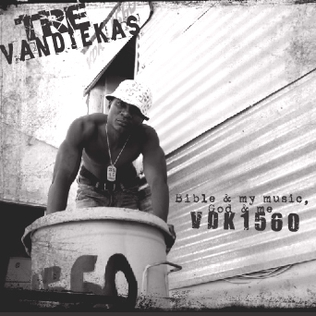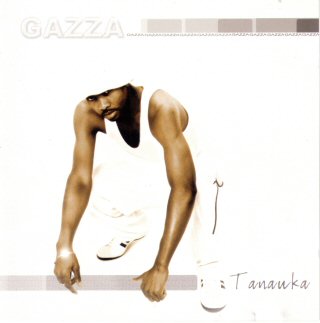
Doggystyle is the debut studio album by American rapper Snoop Doggy Dogg. It was released on November 23, 1993, by Death Row Records and Interscope Records. The album was recorded and produced following Snoop's appearances on Dr. Dre's debut solo album The Chronic (1992), to which Snoop contributed significantly. The West Coast style in hip-hop that he developed from Dre's first album continued on Doggystyle. Critics have praised Snoop Dogg for the lyrical "realism" that he delivers on the album and for his distinctive vocal flow.

Tha Doggfather is the second studio album by American rapper Snoop Dogg. It was released on November 12, 1996, by Death Row and Interscope Records. After the success of his debut album Doggystyle (1993), Snoop was arrested and charged with murder and in 1995, spent time preparing for the case that went to trial. On February 20, 1996, he was cleared of all charges and began working on his second album without Dr. Dre providing work as a record producer. This was Snoop's final album on Death Row until 2022, when he acquired the rights to the Death Row trademarks from MNRK Music Group, releasing BODR the same year. This would also be his last album under the moniker Snoop Doggy Dogg. Recording sessions took place from February 1996 to October 1996, with Suge Knight as the executive producer on the album, alongside the additional production from several record producers such as DJ Pooh, Daz Dillinger, Soopafly and L.T. Hutton; as well as guest appearances from Charlie Wilson, Kurupt, Tray Dee and Warren G, among others.

Paid tha Cost to Be da Boss is the sixth studio album by American rapper Snoop Dogg. It was released on November 26, 2002, by his Doggystyle label, alongside Priority and Capitol Records. Following his departure from the No Limit Records, he later signed a recording contract to Capitol through Priority Records. The album was supported by two singles, both featuring Pharrell: "From tha Chuuuch to da Palace" and "Beautiful", the latter also featuring Charlie Wilson.

No Limit Top Dogg is the fourth studio album by American rapper Snoop Dogg. It was released May 11, 1999, by No Limit and Priority Records. Following the mixed reception of his previous album, Snoop began to work again with Dr. Dre and returned to the west coast sound of his earlier career while on Death Row Records. The album was generally met with positive reception with many critics citing it as a return to form and his best album since Doggystyle (1993). Many praised the production work for the album with the tracks made by Dr. Dre being highlighted as well as Snoop's delivery while criticism was mainly aimed at the length of the album, the No Limit features, and the lack of new lyrical content. The Source placed the album on their list of the "Top 10 Best Albums of the Year" for 1999.

Tha Blue Carpet Treatment is the eighth studio album by West Coast hip hop recording artist Snoop Dogg. It was released on November 21, 2006, by Doggystyle Records and Geffen Records. Recording sessions took place from November 2005 to September 2006 in several recording studios and artists such as Dr. Dre, The Neptunes, DJ Battlecat, DJ Pooh, Timbaland, Danja, Mark Batson, Terrace Martin, and Mr. Porter appear on the album, among others.

Martin Morocky, known by his stage name as The Dogg, is a Namibian musician. Considered a kwaito artist, his debut album, Shimaliw' Osatana, was released in 2004 to mixed reviews. The Dogg was part of the group Omalaeti O'Swapo, which released one album in 2004. His music is enjoyed internationally, in countries such as South Africa, Botswana, Angola, Zambia and Zimbabwe. The Dogg has performed in France, England and Canada. He has received awards and nominations from Channel O. He is one of the highest awarded artists in his country, as well as one of the highest selling. As of 2022, King Tee Dee has about 11 albums and over 20 awards to his name, and he is the most awarded musician in Namibia.

Sunday Shipushu, known as Sunny Boy is a Namibian rapper from Ongwediva. He performs a brand of music known as hikwa, which he engineered by fusing hip hop and Kwaito. He rose to fame after collaborating with Gazza on his song "Koko" in 2004. He increased his buzz with his hit single "Balance" in 2005 when he signed with Mshasho Productions.

Shimaliw' Osatana is the debut album by Namibian kwaito master The Dogg, released in February 2004 through RC-Ghetto Records. Shimaliw' Osatana was the first full length kwaito album released in Namibia. The album was immediately hailed as a masterpiece by several critics, and is today one of the most celebrated and influential albums in Namibia. Shimaliw' Osatana, established The Dogg as one of the most profound lyricists in Namibia, introducing his signature rough attitude style.

Take Out Yo Gun is the second album by kwaito star The Dogg, released in December 2004. The album has received many positive reviews from critics despite the fact that it was released the same year as Shimaliw' Osatana. Take Out Yo Gun was the first album to be released on The Dogg's own label Mshasho Productions. Gazza appeared on the album, The Dogg also appeared on Gazza's Zula II Survive which marked the end of their collaboration.

You Can't Ignore is the fourth album by The Dogg that was released on 5 October 2007 by Mshasho and KOOL Productions. The album was to be titled Mshasho: You Can't Ignore and was later changed prior to its release date. The album features the first collaboration between The Dogg and his music mentor Elvo. It also features the first collaboration between The Dogg and Qonja. This album is more mature and very different from his previous albums. It features a dark tone similar to his first release, Shimaliw' Osatana. The entire album is self-produced with DJ Kboz co-producing two songs. As of 2008, the album is the highest and fastest selling kwaito album in Namibia.
Young, Black en Gifted, commonly referred to as Y.B.G., is Sunny Boy's debut album, released in December 2005 after he was signed to Mshasho Records in 2004. Young, Black en Gifted boosted Sunny's commercial popularity, thus making him a common household name among mainstream music fans. The album also established Sunny as one of the most profound lyrics in Namibia. Most of the tracks features a fusion of hip hop and kwaito. Production comes from The Dogg, Elvo and DJ Kboz.

Elai Lineendunge is the second album by Namibian rapper Sunny Boy, and the first to be released on his own label GreenHouse Entertainment. It was released in December 2006. The album features a much darker sound and much deeper subject matter than, Young, Black en Gifted. It moved away from the mainstream original type of kwaito, used on Young, Black en Gifted and albums done by Gazza and The Dogg, to a hip hop type of kwaito that Sunny describe as hikwa. This style has become influential and has seen Gazza, Qonja, Chipolopolo, Exit & Mushe and many other new Namibian kwaito artist experimenting with it.

Bible and My Music, God & Me is the debut album by Namibian rapper Tre Van Die Kasie. The album features production from The Dogg, Elvo and DJ Kboz. Prior to its release, the album became most anticipated, due to its long-time delay. The media praised the album's composition and structure, but criticise it for its poor marketing and promotion. It was accompanied by no video and lacked a professional radio single. Although When I’m Gone managed to chart, it was the only successful single from the album.
Tretius Kauhangengo, better known as Tre Van Die Kasie, most commonly referred to as Tre is a Namibian kwaito musician and rapper. Tre rose to fame after signing with Mshasho Productions in 2005. He is the half brother of fellow kwaito musician, Kavax.

Omalaeti O'Swapo was the only album released by the Namibian political kwaito group Omalaeti O'Swapo.

Tanauka is the first album by the Namibian musician Gazza. It was released by RC-Ghetto in February, 2004. It includes the hit songs "Ghetto Life" and "Shidolodolo" which both include his then best friend and label mate The Dogg. Production of the album was by Elvo. The album contains songs inspired by different genres.

Zula II Survive is the second album by the Namibian kwaito artist Gazza. The album was more kwaito than his previous release, Tanauka, and until today is considered Gazza's best album. Zula II Survive together with The Dogg's Shimaliw' Osatana and Take Out Yo Gun are considered the first albums to have shaped the Namibian kwaito genre. The album also introduced Sunny Boy to the music industry. "Koko", "KKN" and "Zula II Zula" are the album's biggest hits.

The Sleeping Giant is the third studio album by Namibian rapper Sunny Boy. It was released on Sunny's new label Yaziza Entertainment in December 2008. The album features production from Namibia's top producers such as Elvo, The Dogg, Kboz, Morgan, and B-Phill. It features appearance from Qonja, Jericho, Hedek, Tre VDK, Nasti, Jossy Joss, TeQuila, Lady May, Luvy, Vanessa, Lokos, and Chipoloplo.
Mshasho Clothing is a Namibian clothing brand founded by Martin "The Dogg" Morrocky. The company is 100% owned by Mshasho closed corporation operating as a subsidiary. The name Mshasho is derived from its original name Omushasho which is the Oshiwambo name for a shotgun.

Doggumentary is the eleventh studio album by American West Coast hip hop recording artist Snoop Dogg. It was released on March 29, 2011 on the Priority Records record label. The album was produced by Battlecat, The Cataracs, Gorillaz, David Banner, THX, DJ Khalil, Fredwreck, Jake One, David Guetta, Mike Dean, Jeff Bhasker, Lex Luger, Meech Wells, Mr. Porter, Rick Rock, Rick Rude, Scoop DeVille, Scott Storch, Warryn Campbell, Kanye West, DJ Reflex, among others.
















